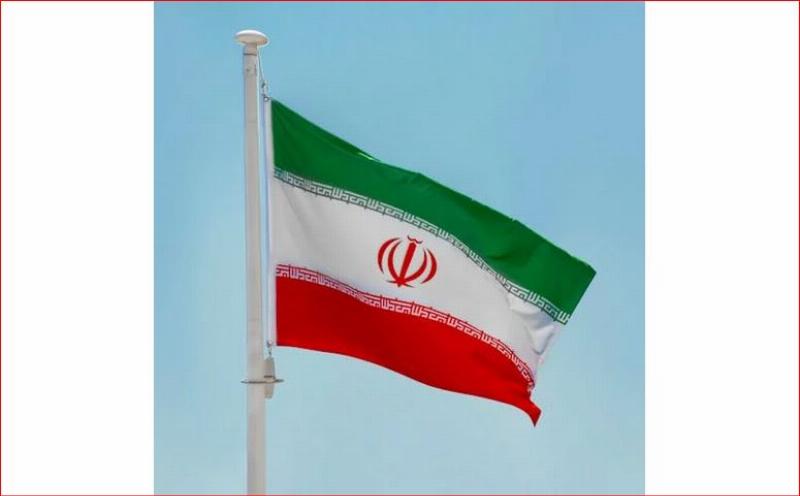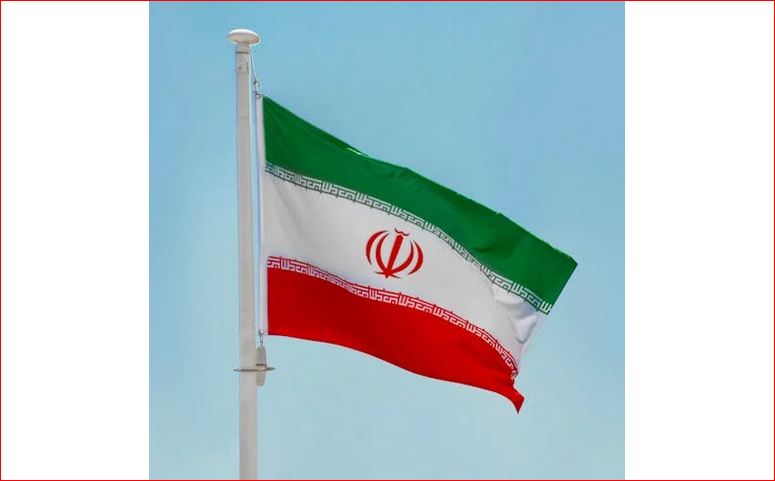

Photo Credit:Iran flag
Pexels
Israel's victories, and the coming prospect of Trump, have suddenly made Iran's mullahs peaceable.
While it might not be readily apparent to those who read headlines and think they are well-informed about the state of affairs in the Middle East, there have been a few recent developments in the region that may not be obvious to casual observers.
On Nov. 28, the New York Times published a somewhat surprising piece touting how the Iranians were suddenly striking a “more conciliatory tone” toward the U.S. and Israel, and reported that it “wants less confrontation.” The catalysts behind those quotations are curious and more require more skepticism than that outlet’s apologists want to put forth.
To set the context of the Iranians’s novel public relations campaign, one would think it unlikely that the mullahs in Tehran have taken time off from studying the Koran to get tutored in Henry Kissinger’s Realpolitik methods of reacting to world events.
It also seems unlikely they have severely amended their philosophies even after considerable shifts in military, political, and economic power that are taking place in the region and the U.S.
But this is an interesting climb-down from the bellicose philosophies dominating Iran since the late 1970s. One would think recent incidents must have made even the most strident anti-Semites there sit up and take notice.
It seems evident that Tehran has been forced to reassess its newly tenuous position after the damage inflicted upon Iranian military and defense capabilities by Israeli airstrikes, as well as a series of setbacks to their Hezbollah, Hamas, and Houthis proxies.
For example:
On Oct. 7, 2023, their Hamas proxies launched a terrorist attack on Israel slaughtering 1,200 innocents and taking 250 hostages; in response Israel countered by invading the Hamas-run Gaza Strip and is still engaged there in 2024, although to a much lesser degree than in 2023.
The number of enemy combatant deaths suffered in Gaza vary wildly from 6,000 to 10,000 or more.
During an April 2024 attack, Iran fired more than 300 drones, cruise, and ballistic missiles targeting Israeli military sites. Israeli and allied air defense systems intercepted the vast majority of those incoming projectiles and damage was minimal.
In July of 2024, the Israelis assassinated two high officials who were Iranian proxies — a Hamas political officer was blown away in a Tehran guesthouse run by the Islamic Revolutionary Guards, and a Hezbollah Secretary General was taken out in a precise airstrike in Beirut.
In September of 2024, thousands of Hezbollah pagers and walkie talkies exploded in Lebanon and Syria. According to Lebanese officials, the number killed and wounded amounted to 4,000.
In October of 2024, Iran launched approximately 180 ballistic missiles at Israel. Israeli and U.S. air defense systems proved their worth once more, limiting the attack’s damage.
Since October of 2024, Hezbollah has launched numerous rocket attacks on the Israeli Defense Forces (IDF) forces in Lebanon. According to the IDF, about 2,300 rockets and missiles targeted them in October alone.
On Oct. 26, 2024, the Israeli Air Force retaliated against Iran’s ballistic missile attacks and assaults against the IDF in Lebanon by targeting production of four solid-propellant ballistic missiles facilities around Tehran. The Israelis also neutralized Iran’s radar installations and three of Russia’s S-300 air-defense systems. There are no reports that any Israeli pilots were injured or killed during this attack.
After assassinations of the Iranian proxy officials, the pagers attacks, and the Israeli Air Force’s incursions into Iranian airspace with no shootdowns or casualties, the realization finally dawned on the Iranians that Israeli intelligence, defense, and military capabilities were more superior than they had assumed. It must have momentarily knocked the hubris right out of their revolutionary fervor. At that point, it became necessary to recalibrate their strategies and tactics for their proxies’ anti-Israeli activities.
The reality of these new conditions has brought them to the point of initiating backchannel communications. They have signaled that from their point of view, local festivities have gotten a little out of hand and that it was time for everyone to go home.
Still, there are reports that during these exchanges, the Iranians have attempted to demonstrate that they are speaking from positions of strength when presenting demands.
However, they are endeavoring to do this when the world knows they have been weakened militarily.
Adding to the immediacy of these backchannel contacts is their calculus of another wildcard that may create even more urgency. The Iranian political advisors who are not drowning in revolutionary rhetoric must have stressed to the Supreme Leader that incoming President Trump is not going to follow the traditions of the “weak horse” presidency of Joe Biden.
To that point, President Trump has already made it quite clear in warning the Iranian proxies (and by extension, Iran itself) that they are on his radar: “for those in charge who perpetrated these atrocities against humanity … (they) will be hit harder than anybody has been hit in the long and storied history of the United States of America. RELEASE THE HOSTAGES NOW!”
Iranian advisors to the Ayatollah must have also reminded him that when President Reagan was about to be inaugurated, the incoming president’s actions were going to differ significantly from the Carter administration’s anemic responses to the Iranians’ hostage-taking of Americans.
Accordingly, Iranian leadership understood the implicit dangers to their position and got the message: a few minutes after President Reagan completed his inaugural address, the Iranians released the American hostages after being held for 444 days. A few days before this recent election, as if reading the writing on the wall about its outcome, Iran took the unusual step of assuring the U.S. it wouldn’t attempt to kill President Trump.
One factor they must be taking into account after these kinds of actions is that the Iranian oil export facilities at Kharg Island looks quite vulnerable after the uncontested Israeli airstrikes.
Once President Trump is inaugurated in January, Iran’s lucrative oil industry’s financial situation may be in the crosshairs.
U.S. Senator Marco Rubio, the Secretary of State designee will likely call for reimposition of tough oil sanctions and stricter enforcement on Iran trade. Depending on how Iranian oil importers react to U.S. requests, there could be actions against Iranian exports and/or these facilities which would have a material effect on funding Hezbollah, Hamas, and the Houthis.
If any of the Iranian theocrats had ever studied abroad, these new situations might have had them recalling a quotation from Samuel Johnson, the 18th century critic and essayist, who said “when a man knows he is about to be hanged … it concentrates his mind wonderfully.”
One does not have to be a prophet to imagine all of the potential negative outcomes for Iran. This new state of play confronting the government and its proxies is right in front of them.
Now, it could be that the mullahs have suddenly become students of the Chinese military strategist Sun Tzu and rely on his maxim that “he will win who knows when to fight and when not to fight.”
Time will certainly tell if the Iranians are now taking a different tack. But based on history, no matter what they do, never, ever wager against the Israelis and those who support them.
Marc E. Zimmerman is a former legislative assistant to a Member of the U.S. Congress.
Image: Pexels (cropped) / Pexels License





